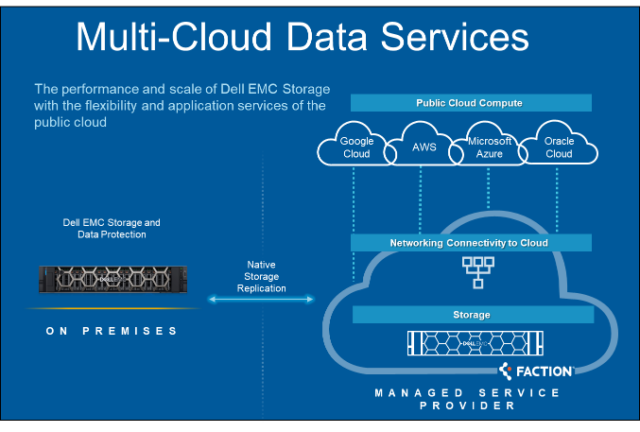In 2000, how many people would have known what ‘the cloud’ was? Now, if you ask the average person, they are probably familiar with the hyperscalers like AWS, Microsoft Azure and Google Cloud, and in some cases, can even name the ones they use. Awareness of cloud among the general populace further cements its position as a major IT force in the 21st century.
It’s off-premises as-a-service IT, in a word – cloud – that’s capturing new implementations and new spending. Cloud native is enabling organizations of all sizes – from startups in garages standing up processing at low cost, to shadow IT used to move faster, to big companies with CFOs who want to trim their balance sheets.
It comes down to how cloud-forward organizations want to leverage their most precious asset, their data, in the cloud. That answer generally falls into three categories:
-
- Move the data offsite.
- Take advantage of offsite processing.
- Take advantage of hyperscaler software services.
Getting data offsite is a simplification, cost or protection play – eliminate the need to manage infrastructure, move data somewhere that’s not as expensive as on-premises and where you can pay only for what you use, or move it offsite to protect it from disasters or bad actors.
Offsite processing lets you take advantage of the hyperscalers who are keeping their CPU gear current even if you can’t and makes it possible to aggregate processing across hyperscalers and/or get the best price from multiple vendors.
As the hyperscalers compete they add new services to their operating systems to attract users with unique capabilities. You often need to leverage hardware and software resources from multiple hyperscalers to solve a complete application problem. Already, 81% of respondents in a recent survey reported they are using more than one public cloud provider.¹ This means your valuable data needs to be processed in multiple clouds at the same time. But this multi-cloud imperative runs counter to the data gravity of today’s public clouds which can result in data silos because data can’t be shared, locking you into a single cloud vendor. And remember, most often the data originated on your premises – from an on-line transaction processing (OLTP) system, a data capture device like a genome sequencer, or a backup target like a virtual tape library.
Fortunately, Dell Technologies already provides world-class storage for all types of data – block, file, scale-out file, object and backup. Multi-Cloud Data Services enabled by Faction lets data cross the chasm between on-premises and off-premises cloud locations and processing. Multi-Cloud Data Services lets you provide simultaneous multi-cloud access to your data, including data that originates on-premises, to reduce data gravity, eliminate vendor lock-in and take advantage of the best the hyperscalers have to offer, all as a fully managed service. And Multi-Cloud Data Services can host cyber-recovery solutions to protect your unstructured and backup data and enable quick recovery to multiple clouds.
 Recent updates to Multi-Cloud Data Services enabled by Faction include geographic and offer expansion to cover more customers and more use cases. All data storage, data protection and hosting solutions are now available in the first APJ location in Sydney, Australia. Hosting services are now available for the entire Superna Eyeglass Suite of software products. Superna enables customers to implement off-premises disaster recovery and cyber-resiliency solutions for data that originates in on-premises PowerScale arrays.
Recent updates to Multi-Cloud Data Services enabled by Faction include geographic and offer expansion to cover more customers and more use cases. All data storage, data protection and hosting solutions are now available in the first APJ location in Sydney, Australia. Hosting services are now available for the entire Superna Eyeglass Suite of software products. Superna enables customers to implement off-premises disaster recovery and cyber-resiliency solutions for data that originates in on-premises PowerScale arrays.
Also, customers can now order Faction Multi-Cloud Data Services for Dell EMC PowerScale directly through the Azure Marketplace. This streamlined procurement process allows customers to leverage existing Microsoft programs and retire Azure committed spend toward Faction services.
Implement the cloud portion of your IT operations strategy for your data with Multi-Cloud Data Services enabled by Faction, available from Dell Technologies. Learn more at our Multi-Cloud Services page.
¹ Gartner, Lessons learned from the most common mistakes made by cloud infrastructure adopters, May 2020


